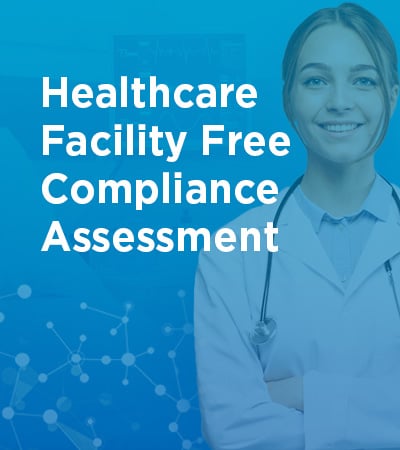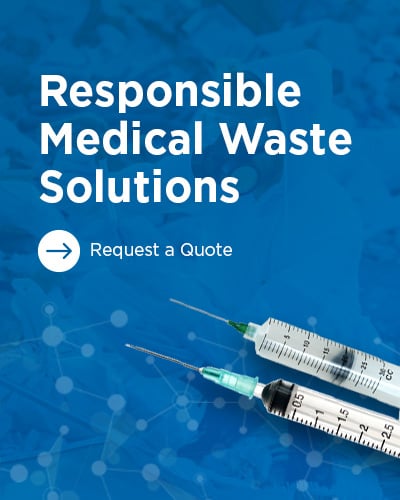
As a patient, it is normal to constantly be concerned about what happens to your health information and who has access to it. Did you know that Protected Health Information (PHI) under HIPAA Law is covered for 50 years after death? It’s important to know what the Health Insurance Portability and Accountability Act (HIPAA) does, and how it protects your information. In this article, I’ll cover the rules of HIPAA, certification, compliance, and more. For information about a HIPAA violation, law, and more, visit the previous article titled HIPAA on our blog.
HIPAA Privacy Rule
There are many rules under HIPAA, including the Privacy Rule, Security Rule, Transactions and Code Sets Rule, Unique Identifiers Rule, and Enforcement Rule. In this section, we’ll cover the Privacy Rule and Security Rule. So, what do these rules do, and how are they enforced?
The Privacy Rule abbreviated the Standards for Privacy of Individually Identifiable Health Information, establishes standards for the protection of specific health information. This content goes by the title Protected Health Information (PHI). The Office for Civil Rights (OCR) takes responsibility for enforcing the Privacy Rule with respect to voluntary compliance activities and penalties for any violations. This includes any health information that is individually identifiable. The Privacy Rule brings a safe balance to the uses of information while keeping the privacy of individuals needing health care. The spread of health information is essential to providing a safe cyclic movement of information for the best healthcare results.
HIPAA Security Rule
Now that you know about the HIPAA Privacy Rule, we’ll talk about its sister. The HIPAA Security Rule as stated by the HHS, “establishes national standards to protect individuals’ electronic personal health information that is created, received, used, or maintained by a covered entity”. The rule functions under necessary “administrative, physical and technical safeguards to ensure the confidentiality, integrity, and security of electronically protected health information”, adds the U.S. Department of Health and Human Services. There are four vital parts of the Security Rule maintained in order to find relevant security safeguards helping to reach compliance with HIPAA. These four parts include Physical, Administrative, Technical, and Policies (Procedures, and Documentation Requirements). The Security Rule protects all PHI that a covered entity creates and works with in electronic form, also known as e-PHI. Covered entities are required to “ensure the confidentiality of all e-PHI; safeguard against threats to the security of the PHI; protect against anticipated impermissible uses; certify compliance by their workforce” in order to comply with HIPAA Security Rule, as stated by the Centers for Disease Control and Prevention (CDC).
HIPAA Compliance
At this point, you may be wondering how covered entities follow HIPAA Compliance. Covered entities are required to have designated people (or persons - depending on the size of the business) to fulfill the duties of a HIPAA Compliance Officer. In simplest terms, a HIPAA Privacy Officer is in charge of developing HIPAA-compliant privacy programs, maintaining privacy policies to protect the PHI, and delivering employee privacy training. These tasks also include performing risk assessments and implanting HIPAA-compliant procedures. Similarly, a HIPAA Security Officer is responsible for “security policies, the implementation of procedures, training, risk assessments and monitoring compliance”, said the HIPAA journal.
HIPAA Certification
Finally, we’ve talked about some of the HIPAA rules and compliance, so now it’s time to find out how a business becomes HIPAA certified. To be HIPAA certified you have to complete a course specifically to teach you the information your organization needs to become HIPAA compliant. Note that this doesn’t make you automatically compliant, but trains you in terms of how to embed these into your organization.
Evaluation: The evaluation standard requires businesses to take a regular assessment that shows the range to which its security policies meet the security requirements. So who conducts the evaluation? A covered entity or external organization that supplies “certification” services can be used for the assessment. To earn HIPAA certification, you’ll need to complete a certain course or course.
Certification Courses: When it comes to which certification course to choose, there’s a variety of options. There is HIPAA certification training that covers an overall understanding of the HIPAA, training, and regulations (security, administration, and auditing). Online courses are also available and can be taken on your own time.
How Do You Become HIPAA Certified: Choose a HIPAA certification course that includes the individuals that need to take it. Instead of putting all employees through this same course (if you can’t do so), then select people to take the course and then re-teach the course to their peers. HIPAA-trained employees are essential to covered entities and such companies.
PureWay Offers HIPAA Compliance Solutions for Healthcare
HIPAA Compliance can be a daunting task in a healthcare facility but whether you are wanting to learn more about HIPAA Law of HIPAA Violations, PureWay Compliance has solutions and training options for every facility. To learn more about these options visit pureway.com.






